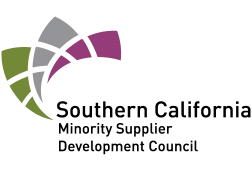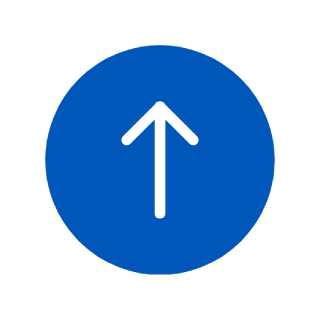
Dealing with unpaid invoices can be a hassle, but it’s a part of running a business. Knowing your options for debt collection can make the process smoother and help you get the money you’re owed without straining your customer relationships.
Let’s look at the different types of debt collection services available and figure out which one might be the best fit for your needs.
TABLE OF CONTENTS
Understanding Debt Collection Laws
» What Are Debt Collection Services?
Debt collection services help businesses like yours recover money that’s overdue. Whether you’re dealing with customers who forgot to pay or those who are struggling financially, these services step in to ensure you don’t miss out on the cash flow you need to keep your business thriving.
» Why Do Debt Collection Services Matter?
Timely debt collection is crucial because unpaid invoices can seriously disrupt your financial health. Imagine trying to keep your business running smoothly when you’re waiting on payments that just aren’t coming in. By using the right debt collection service; you can improve your chances of getting paid, maintain your cash flow, and focus on what you do best—running your business.
Also Read: Effective Debt Collection Strategies
Types of Debt Collection Services
Let’s look at the different debt collection options available to you. Each has its own set of advantages and potential drawbacks, so it’s important to choose one that aligns with your business’s needs and values.
» A. In-House Collections
In-house collections mean you handle the debt recovery process yourself, using your team to reach out to customers and remind them to pay up.
Pros:
- You’re in control: You decide how to approach each customer, ensuring the process aligns with your company’s values.
- Personal touch: Since you know your customers, you can communicate in a way that maintains positive relationships.
Cons:
- Time-consuming: It takes a lot of time and resources, which could be spent on your core business activities.
- Can be a distraction: Focusing on collections might pull your attention away from more important tasks.
» B. Collection Agencies
A collection agency is a third-party company that specializes in recovering debts. They use their expertise and resources to track down payments on your behalf.
Pros:
- Expertise: These agencies know the ins and outs of debt collection, so they’re often more effective at getting results.
- Saves you time: You can focus on your business while the agency handles the tough conversations.
Cons:
- Less control: Once you hand over the debt, you have less say in how it’s collected.
- Customer relationships: If the agency uses aggressive tactics, it could harm your relationship with your customers.
» C. Debt Recovery Lawyers
When things get complicated or the amount owed is significant, you might need a debt recovery lawyer. These legal professionals can take the matter to court if necessary.
Pros:
- Legal muscle: Lawyers have the authority to take legal action, which can be a strong motivator for debtors to pay.
- Expert handling of tough cases: They’re equipped to deal with complex situations, like disputes or bankruptcies.
Cons:
- Expensive: Legal services can be pricey, which might not be worth it for smaller debts.
- Can feel confrontational: Involving lawyers can make the situation more adversarial, which might strain relationships.
» D. Debt Collection Software
Debt collection software automates parts of the collection process, like sending reminders and tracking payments, making it easier to manage your debts.
Pros:
- Efficiency: Automation handles routine tasks, freeing up your time.
- Data-driven: The software often provides useful insights and data to help you manage collections more effectively.
Cons:
- Upfront cost: There’s usually an initial investment to set up the software.
- Tech-savvy required: You’ll need some technical know-how to get the most out of these tools.
» E. Mediation and Arbitration Services
These services offer a way to resolve debt disputes without going to court. A neutral third party helps both sides come to an agreement.
Pros:
- Less confrontational: This method focuses on finding a solution that works for everyone, keeping things amicable.
- Faster resolutions: It’s often quicker than taking legal action.
Cons:
- Uncertain outcomes: The result might not always be in your favor, especially if you have to compromise.
- Less direct: It’s not a traditional debt collection method, so it might not be as straightforward.
Also Read: 9 Questions to Ask Before Hiring a Debt Collection Agency
Factors to Consider When Choosing a Debt Collection Service
» Type and Amount of Debt
Think about the size and complexity of the debt. For smaller, straightforward debts, in-house collections or software might do the trick. Larger or more complicated debts might require the expertise of a collection agency or a lawyer.
» Cost and Fees
Different services come with different price tags. In-house efforts and software may involve lower ongoing costs but require an upfront investment, while collection agencies and lawyers usually charge a fee or take a percentage of what they recover.
» Control and Communication
Decide how much control you want over the process. If maintaining a good relationship with your customers is important, you might prefer in-house collections or mediation, where you can manage the communication directly.
» Legal and Compliance Issues
Make sure you’re aware of the legal requirements and compliance issues in your area. Some methods, like using lawyers or mediation, offer more legal protection.
Also Read: What You Should Know About Debt Collection Laws Before Hiring a Service
Making the Decision: Which Debt Collection Service is Right for You?
» Assessing Your Needs
Choosing the right debt collection service comes down to understanding your business’s needs. If you value control and maintaining good customer relationships, in-house collections or mediation might be your best bet. For more challenging debts, a collection agency or legal services could be more effective.
» Scenario Examples
- For small, frequent debts: Consider in-house collections or debt collection software.
- For large, complex debts: A collection agency or debt recovery lawyer might be more appropriate.
- For disputes: Mediation or arbitration can help resolve conflicts without damaging relationships.
The Takeaway
When it comes to debt collection, one size doesn’t fit all. By considering factors like the type and amount of debt, costs, and how much control you want over the process, you can choose the service that’s right for you. Whether you go with in-house collections, a debt collection agency, legal services, or mediation, the right approach will help you recover debts effectively while keeping your business running smoothly.
Don’t let unpaid invoices disrupt your business. Coast to Coast Financial Services, a reliable Thousand Oaks debt collection agency, can help you recover your money quickly and efficiently. Our dedicated debt collectors are just a call away. Contact us now at 805.506.8195 and take the first step toward financial recovery.





